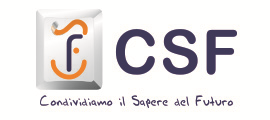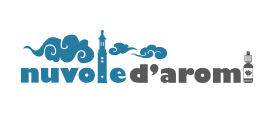How do you learn to write a story?

How do you learn to write stories that know how to bind and capture readers, dragging them into their world alongside the protagonists?
Can you learn to write stories ? And to invent them?
When I started writing, many years ago, I made the biggest mistake anyone can make: I had read little or nothing. I think that's just the secret to learning to write: reading a mountain of books and trying to write stories.
Dialogues, characterization, suspense, setting construction, point of view, writing style, showing and not telling and other elements of storytelling are notions that can be learned online today.
The problem is knowing how to invent stories : can this important and fundamental part of creative writing be learned?
Books on writing: how useful are they?
Let's start from the assumption that books on creative writing are completely useless . Writing books don't teach you how to write. They don't solve writer's block. I'm not manna from heaven.
Once you have learned Italian grammar - and for this it would be enough to have obtained a middle school diploma, if not just an elementary school diploma - the rest is just exercise, self-criticism and technique. Which can also be learned by reading a lot (not so much, but indeed a lot ).
But there is something that no book or any teacher can ever teach: inventing stories . It is the imaginative power that every writer has and must have, if he wants to define himself as such. And you don't learn anywhere: either you have it or you don't.
Another book on writing has just come out: Writing Science Fiction by Robert Silverberg from the 451 publishing house. I knew the author, but I've never read anything by him. The title of the book is however misleading, because it does not explain how to write science fiction stories.
What did he leave me? Almost nothing. Too self-congratulatory for my tastes. However, I found science fiction authors that I didn't know and a book that I managed to get hold of: Greek Tragedy by HDF Kitto, unfortunately only in English.
So far I've read several about writing, but most of it I have nothing left. No one, however, taught me anything about writing.
What about creative writing courses?
I can't talk about it because I've never been to any. And I won't frequent any. I've always been skeptical of these creative writing courses.
Ask yourself a question: have the great writers of the past, but also of the present, attended writing courses? Yes, maybe someone does. But most have learned to write in the field, by reading and writing.
But they knew how to invent stories: they had ideas, they knew how to seize them, they knew how to reinvent other people's ideas, exploit any idea they found. Their brains were always boiling, their gears always turning. Nothing was enough for them to have an idea to write about.
The infallible structure of a story
That is: 5 elements that absolutely cannot be missing in a story . They summarize, schematically, the dramatic arc of the protagonist. Also call it a hero's journey.
There are many who talk about this type of structure, which has been in operation for over 2000 years, since the time of the Greek tragedy. Silverberg also talked about it in the book I mentioned.
Why does this structure work? Let's start at the beginning.
1) A fascinating protagonist
I'm not talking about the usual beauty or the usual model that we are all too used to seeing in American films - and beyond. Nor of protagonists from novels Harmony. They are clichés to abandon.
Fascinating in the sense of a protagonist capable of attracting readers , of making them identify with his events and keep them by his side from the beginning to the end of the story.
Even Pinocchio is a fascinating protagonist – certainly not handsome with his wooden complexion and the importance of his nose. Even the crude Huckleberry Finn is a fascinating character.
The reader, to follow a story, needs to identify with the protagonist, to get in tune with him. Even a criminal can be charming. How many times on the screen have we sided with a prisoner who wanted to escape from prison? Just think of Papillon, born Henri Charrière, in the film of the same name and Frank Morris in Escape from Alcatraz .
2) A challenge to fulfill or not to refuse
A story can be born for 2 reasons:
- The protagonist wants to achieve a goal : the farmer wants to marry the princess, the adventurer wants to find the hidden city, a boy wants to avenge his parents killed in a robbery, etc.
- The protagonist is forced to accept a task : a man is forced to recover drugs or the mafia will kill his family, a woman is forced to steal important documents or she won't see her son again, etc.
These reasons, declined in every possible way, constitute the triggering incident, i.e. a desire, a mission, a problem that kick off the story.
In short, something has to happen to be a story. This concept is inherent in the very etymology of the word history, whose root is also that of the verb to see and even of idea.
«Widespread narration of facts, of events, of things worthy of being handed down to posterity», the etymological dictionary tells us.
A story must always answer the question: "What's going on?".
3) Obstacles to overcome
A story is an obstacle course. No task, no desire, no mission, no problem can find a success without running into some obstacles.
Even returning home you can encounter obstacles: the lift doesn't work and we live on the 15th floor…
The obstacles must be inserted according to the story, that is, they must be credible and pertinent to the story.
How many obstacles to insert? How many does the story require. It's not a precise answer, but there isn't one. The only answer, in fact, is not to exaggerate, unless you're writing the fictional history of Donald Duck.
4) A black moment
When all is lost. It's a moment of surrender. The protagonist knows that he will never be able to complete his task, to satisfy his desire, to fulfill his mission, to solve his problem:
- The farmer is arrested because he dared to woo the princess
- The adventurer is imprisoned by the cannibals, waiting to become their dinner
- The boy is discovered in the robbers' hideout and recognized
- The man is robbed of the drugs recovered for the mafia
- The woman is caught stealing documents and is fired
The black moment is really a moment : there is a crescendo of facts which finally creates a surrender, a sense of defeat in the protagonist. He is now convinced that he has lost.
What is the black moment if not a new triggering incident? The story cannot end when our protagonist gives up. That initial surrender is therefore the push, the motivation that leads the protagonist to react to try to turn events around.
5) Final victory or defeat
We have reached the end of the story, which can also last for 100 pages (not if the novel is 200 long). The tension subsides, there is no more suspense here, we are at the last lines, at the descending stretch of the dramatic arc.
Victory or defeat? One of the two, depends on the story and your tastes. A drama or horror novel will certainly not end well.
The idea for a story is little or nothing. The plot is only a summary of the story or a brief development of the idea. Then the structure must intervene, with its 5 inevitable elements, to transform that idea and that plot into a story to tell.
How many times, reducing a novel to the bone, have you encountered this structure?
And how many times have you used it?
When you subscribe to the blog, we will send you an e-mail when there are new updates on the site so you wouldn't miss them.
By accepting you will be accessing a service provided by a third-party external to https://www.insightadv.it/


































































Comments